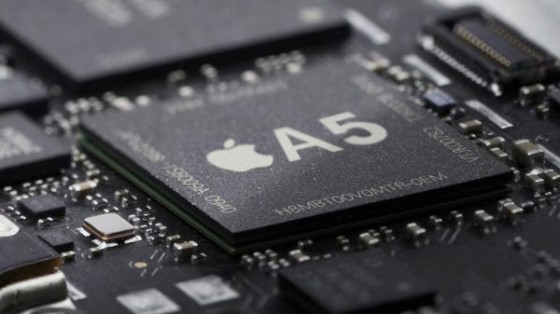TSMC Reportedly Taking Orders For Next-Gen Apple A6
Up until now, Samsung has handled all of Apple's CPU manufacturing needs, including the A4 and A5 processor. New rumors, however, suggest that TSMC has been tapped for the company's next-generation A6. Apple hasn't committed to actually purchasing chips at this point, but has handed the Taiwanese foundry what it needs to test product yields. Reuters quotes an unidentified source as saying: "TSMC has got all the authorisation and details ready. Whether Apple puts in a formal order will depend on the yield rate."
TSMC has refused to formally comment on the issue but the number of semiconductor manufacturers capable of building a next-generation Apple chip is limited, particularly when it comes to committing to the volumes Apple is going to want. It's possible that Apple intends to test several manufacturers--GlobalFoundries is likely eager for a taste of Apple's business.
Samsung would, of course, undoubtedly prefer to continue handling Apple's manufacturing, but the deepening dispute between the two companies makes that increasingly unlikely. A judge this week refused Apple's request to speed the case and bring it to a jury by February. The two companies have been in talks since at least a year before the lawsuit was filed. The judge ruled that Apple has shown no reason why the case should be handled more quickly, particularly given the long, drawn out negotiating process.

Actually vetting other processor manufacturers is an escalation tactic and demonstration of Apple's determination to bring Samsung to task for what it views as infringement. Samsung's refusal to settle, despite the potential loss of Apple's sales volume, is a sign of how seriously the company takes its own case (or believes in its own products.) Even if Samsung loses future Apple processors, it'll continue
to handle at least some Apple A5 work; exact amounts will likely depend on any settlement the two company's reach as well as the time to ramp A5 production in any other facility. The A6 is still a ways from introduction--it's unlikely to appear before 2012--and may feature a quad-core processor as well as 28nm production.
We're betting any move Apple makes towards a quad-core CPU will be based more on real-world power consumption and performance benefits as opposed to spec sheet competition. Quad-cores may be the Next Big Thing for mobile devices, but Apple may be able to squeeze better battery performance (and similar performance) out of a dual-core processor. Despite advances in this regard, mobile phones still aren't known for their multitasking performance—quad core processors may deliver relatively limited benefits in a majority of scenarios. Desktops and laptops, despite much higher overall performance and fewer power restrictions, still see much less than ubiquitous scaling, even from two to four cores.
TSMC has refused to formally comment on the issue but the number of semiconductor manufacturers capable of building a next-generation Apple chip is limited, particularly when it comes to committing to the volumes Apple is going to want. It's possible that Apple intends to test several manufacturers--GlobalFoundries is likely eager for a taste of Apple's business.
Samsung would, of course, undoubtedly prefer to continue handling Apple's manufacturing, but the deepening dispute between the two companies makes that increasingly unlikely. A judge this week refused Apple's request to speed the case and bring it to a jury by February. The two companies have been in talks since at least a year before the lawsuit was filed. The judge ruled that Apple has shown no reason why the case should be handled more quickly, particularly given the long, drawn out negotiating process.

Actually vetting other processor manufacturers is an escalation tactic and demonstration of Apple's determination to bring Samsung to task for what it views as infringement. Samsung's refusal to settle, despite the potential loss of Apple's sales volume, is a sign of how seriously the company takes its own case (or believes in its own products.) Even if Samsung loses future Apple processors, it'll continue
to handle at least some Apple A5 work; exact amounts will likely depend on any settlement the two company's reach as well as the time to ramp A5 production in any other facility. The A6 is still a ways from introduction--it's unlikely to appear before 2012--and may feature a quad-core processor as well as 28nm production.
We're betting any move Apple makes towards a quad-core CPU will be based more on real-world power consumption and performance benefits as opposed to spec sheet competition. Quad-cores may be the Next Big Thing for mobile devices, but Apple may be able to squeeze better battery performance (and similar performance) out of a dual-core processor. Despite advances in this regard, mobile phones still aren't known for their multitasking performance—quad core processors may deliver relatively limited benefits in a majority of scenarios. Desktops and laptops, despite much higher overall performance and fewer power restrictions, still see much less than ubiquitous scaling, even from two to four cores.

